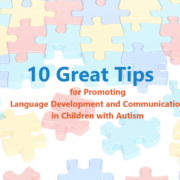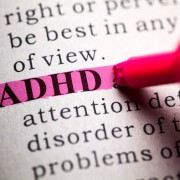Listening Comprehension Issues: What Parents Need to Know
Most kids will tune out their parents and teachers from time to time—especially when you’re asking them to do something they’re unhappy about.
But if your child is always asking you to repeat yourself, saying “Huh?” or ignoring your instructions when you know they were within earshot, it might not be their fault. They could be one of the 2-9% of children with an auditory processing disorder.
If your child is struggling with listening comprehension, there are steps you can take to improve it. Read on to find out all about auditory processing disorders and what you can do to help your child.
What Is an Auditory Processing Disorder?
While many of us attribute listening comprehension problems to an issue with hearing itself, children with an auditory processing disorder (APD) can hear just fine. The problem arises when their brain isn’t able to make sense of the sounds it’s hearing.
For most of us, telling the difference between similar sounds (like dog and log, or hat and cat) is second nature. But for a child with APD, it can seem impossible. Add in the background noise of a city or busy classroom, and they might not be able to understand much of anything that’s said to them.
No one is completely sure about what causes APD. Chronic ear infections, head trauma, and lead poisoning might contribute, but they aren’t present in all cases. And because they can still hear sounds clearly in a quiet, controlled environment, kids with listening comprehension problems may go undiagnosed for years.
Signs Your Child Is Struggling with Listening Comprehension
The signs of an audio processing disorder are easy to mistake for stubbornness or disobedience. They may end up causing problems in school, in relationships, and at home. Some of the most common ones include:
- Difficulty following instructions, especially with multiple steps
- Unable to hold long conversations, sometimes “tunes people out”
- Unable to follow spoken lessons in school
- Asks speakers to repeat themselves often
- Distracted by background noise
- Dislike of noisy environments (school hallway/cafeteria, busy roads, etc.)
- Poor spelling and reading comprehension
- Difficulty solving oral or word-based math problems
- Poor musical skills
- Performance and comprehension improves in quiet rooms
How many of these signs does your child display? If you checked off most or all of the symptoms on this list, you might want to get your child tested for APD.
Is This a Focus Issue or a Processing Problem?
Just because your child displays most of the symptoms listed above doesn’t automatically mean they have APD. Many of the symptoms of APD overlap with attention disorders like ADHD. And, to make matters more complicated, 45-75% of patients with either APD or ADHD actually have both conditions.
To make sure your child receives the right support, it’s important to see a specialist for a formal diagnosis. Children with APD will need treatments that focus on audio memory and comprehension, while those with ADHD may benefit most from treatment that addresses focus and attentiveness.
Testing and Diagnosis
If your child is enrolled in school, their support services may be able to help with the testing and diagnosis process. Ask your child’s guidance counselor if your school provides free evaluations. Even if they aren’t able to diagnose APD, they may at least be able to rule out ADHD and hearing deficits.
Your child’s pediatrician might recommend that they see an audiologist for a more formal diagnosis. Audiologists test for these five things:
- Auditory Discrimination:Inability to tell similar sounds apart
- Auditory Figure-Ground:Difficulty paying attention with too much background noise
- Auditory (Echoic) Memory:Inability to remember spoken directions in the short and/or long term
- Auditory Attention:Inability to stay focused on listening activities
- Auditory Cohesion:Problems with high-level listening comprehension
If enough of these deficits are present, your child may be diagnosed with APD.
Treatments for APD
There aren’t any medications available for treating audio processing disorders. If your child has both APD and ADHD, a medication for ADHD might help improve some of their symptoms. But for most children, a supportive and therapeutic approach is the most helpful.
The first part of treatment involves giving your child the environment they need to be able to learn. This might mean taking them out of a loud classroom and giving them one-on-one attention in a quiet room. If that isn’t possible, using a frequency modulation (FM) device can amplify a speaker’s voice while tuning out background noise.
Speech therapy can also help your child with oral comprehension. A speech therapist can show your child how to use their FM device and give them exercises to train their speaking and listening skills.
Our auditory systems continue to grow and adapt all the way through our teenage years. So the earlier you start treating an auditory processing disorder, the better the chance for improvement. Your child may also develop better listening comprehension skills on their own as they get older.
Improving Your Child’s Listening Comprehension Skills
An auditory processing disorder can be hard for both a child and their parents to overcome. But with the right support system and some hard work, your child can improve their listening comprehension skills over time.
If you’re looking for speech therapy services to help improve listening and reading comprehension or attention problems, Great Speech may be able to help. Our trained professionals provide online speech therapy so your child can get quality treatment without traveling to a clinic. If you’d like more information, contact us today for a free consultation.












